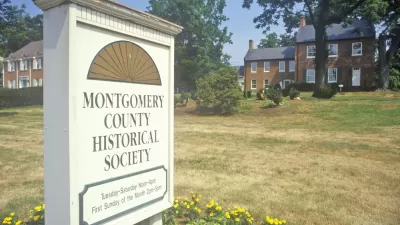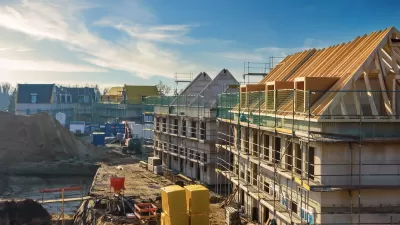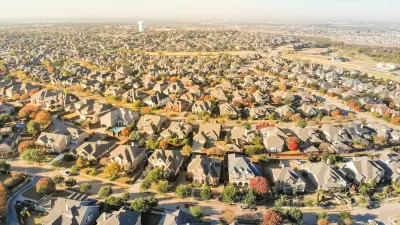A campaign is underway in Wales to revive the "Garden City" concept, first brought to life in 1898. This time, supporters are claiming the radial, suburban plan is a sustainable alternative to cities.
"GARDEN cities, which provided idyllic living conditions in the early 20th century, could be the model for new property developments.
Planning experts believe that concerns over sustainability, energy prices and climate change, coupled with a shortage of affordable housing and attractive family homes, could provide the right conditions for garden communities to flower once again.
When the concept was hatched in 1898, Britain had been transformed by more than a century of rapid industrial development.Garden cities – or suburbs – were proposed as a solution to substandard and overcrowded housing and a lack of green space and clean air. The model was widely used in Britain in the early decades of the last century."
"But over the past few decades property developers have been in the driving seat, guided mainly by commercial considerations.
Now the Town and Country Planning Association, an independent campaign for a better planning system, believes the garden city principles should be applied to new settlements – including eco-towns and urban extensions – to provide attractive and sustainable environments."
FULL STORY: Planners shun urban deserts and call for a return to garden cities

Manufactured Crisis: Losing the Nation’s Largest Source of Unsubsidized Affordable Housing
Manufactured housing communities have long been an affordable housing option for millions of people living in the U.S., but that affordability is disappearing rapidly. How did we get here?

Americans May Be Stuck — But Why?
Americans are moving a lot less than they once did, and that is a problem. While Yoni Applebaum, in his highly-publicized article Stuck, gets the reasons badly wrong, it's still important to ask: why are we moving so much less than before?

Using Old Oil and Gas Wells for Green Energy Storage
Penn State researchers have found that repurposing abandoned oil and gas wells for geothermal-assisted compressed-air energy storage can boost efficiency, reduce environmental risks, and support clean energy and job transitions.

Updating LA’s Tree Rules Could Bring More Shade to Underserved Neighborhoods
A new USC study finds that relaxing Los Angeles’ outdated tree planting guidelines could significantly expand urban tree canopy and reduce shade disparities in lower-income neighborhoods, though infrastructure investments are also needed.

California's Canal Solar Projects Aim to Conserve Resources and Expand Clean Energy
California’s Project Nexus has begun generating electricity from solar panels installed over irrigation canals, with researchers and state agencies exploring statewide expansion to conserve water and boost clean energy production.

HHS Staff Cuts Gut Energy Assistance Program
The full staff of a federal program that distributes heating and cooling assistance for low-income families was laid off, jeopardizing the program’s operations.
Urban Design for Planners 1: Software Tools
This six-course series explores essential urban design concepts using open source software and equips planners with the tools they need to participate fully in the urban design process.
Planning for Universal Design
Learn the tools for implementing Universal Design in planning regulations.
Heyer Gruel & Associates PA
City of Moreno Valley
Institute for Housing and Urban Development Studies (IHS)
City of Grandview
Harvard GSD Executive Education
Salt Lake City
NYU Wagner Graduate School of Public Service
City of Cambridge, Maryland





























